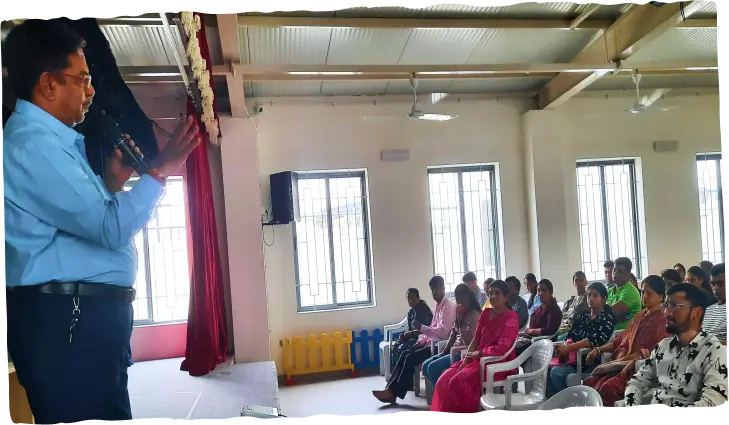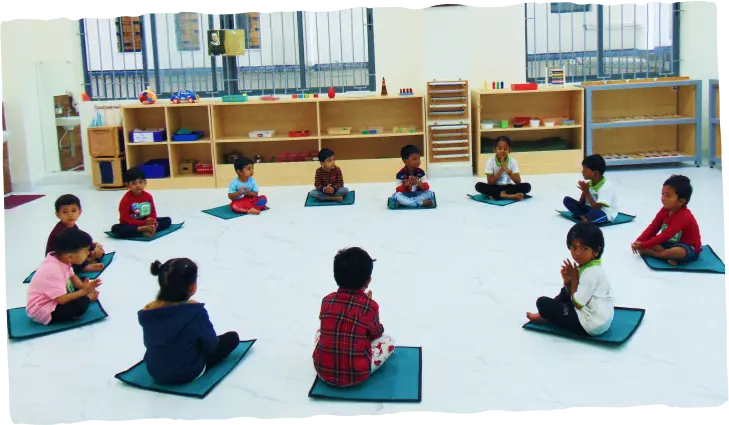Top 10 Pre Schools in Bangalore
Admission Top 10 Pre schools in Bangalore in 2025 The bustling city of Bangalore has seen significant development in the
Nowadays, many Montessori schools are run under the basic thumb rule for early development, and that is sensory based learnings. Slowly, most schools are following the Montessori method of education throughout India, and in Mumbai currently, the latest report suggests that 30% have already switched to it for young children from age 3 to 6. In this blog, let us see how these activities help children and what are the different types of Montessori activities that schools implement for effective teaching.
Toddler
(12-18 months)
Gross motor activities like crawling, walking, climbing
Develops physical coordination and balance.
Sensory play exploring textures, shapes, colors
Stimulates sensory development and curiosity.
Simple puzzles and stacking toys
Enhances hand to eye coordination and patience.
Preschooler (18 months-3 years)
Practical life activities like weeping, pouring, buttoning
Develops independence, concentration, and fine motor skills.
Sensorial activities sorting, matching and categorizing
Refines sensory perceiving capabilities and cognitive skills.
Language activities with phonetic awareness for vocabulary Building
Improves language development and literacy skills.
Socializing, group play and cooperation
Encourages social skills, empathy, and teamwork with adjusting qualities.
Early Elementary (3-6 years)
Math Activities like counting, number sense through number line and geometric shapes
Develops logical thinking, understanding and reasoning abilities.
Language improving with reading, writing, spelling and sentence formation
Enhances literacy skills and creative expression.
Cultural studies like geography, history, science and humanics
Broadens knowledge of the world.
Practical life hacks like basic no fire cooking, gardening, sewing
Develops life skills and responsibility.
Later Elementary (6-12 years)
Complex puzzle solving activities
Helps in further critical thinking and logical reasoning.
Scientific practicality and experimentation
Develops scientific thought process and curiosity.
Independent Research Projects
Fosters self-directed learning and research skills.
Advanced Language Arts and Math
Deepens understanding of language and mathematical concepts.
SHARE THIS ARTICLE
Admission Top 10 Pre schools in Bangalore in 2025 The bustling city of Bangalore has seen significant development in the

The Montessori education system has drawn parents and educators to explore the curriculum for over a century now.

Since Montessori education has existed around for a while and has gained popularity due to its importance of early